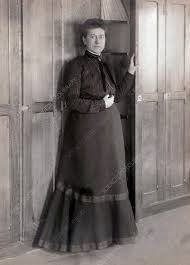On a cold morning in 1857, in Dundee, Scotland, Williamina Paton Stevens Fleming was born. No one could have imagined that this girl, raised far from the world of science, would one day leave her mark among the stars.
By the age of 14, she was already teaching. At 20, she married and emigrated to America, but her husband abandoned her, leaving Williamina alone with a newborn son in a foreign land. To survive, she became a housekeeper for Edward Pickering, the director of the Harvard College Observatory.
Legend has it that, frustrated with his male assistants, Pickering once said, “My Scottish maid could do better!” And so, she did. In 1881, she joined the observatory and quickly proved her exceptional talent.
Williamina became the first of the “Harvard Computers,” a group of women who analyzed the heavens through thousands of glass photographic plates. Patiently and tirelessly, she classified over 10,000 stars, discovered novae, nebulae, and variable stars, and played a pivotal role in developing the Harvard Classification System—still the foundation of modern stellar astronomy.
Her groundbreaking achievements shattered barriers for women in science. In 1906, she became the first American woman to be named an honorary member of the Royal Astronomical Society.
Williamina Fleming’s journey reminds us that greatness can rise from the most unexpected places. She didn’t just count the stars—she gave them order, meaning, and left a shining legacy for women who dared to dream of the cosmos.🫡✍️
